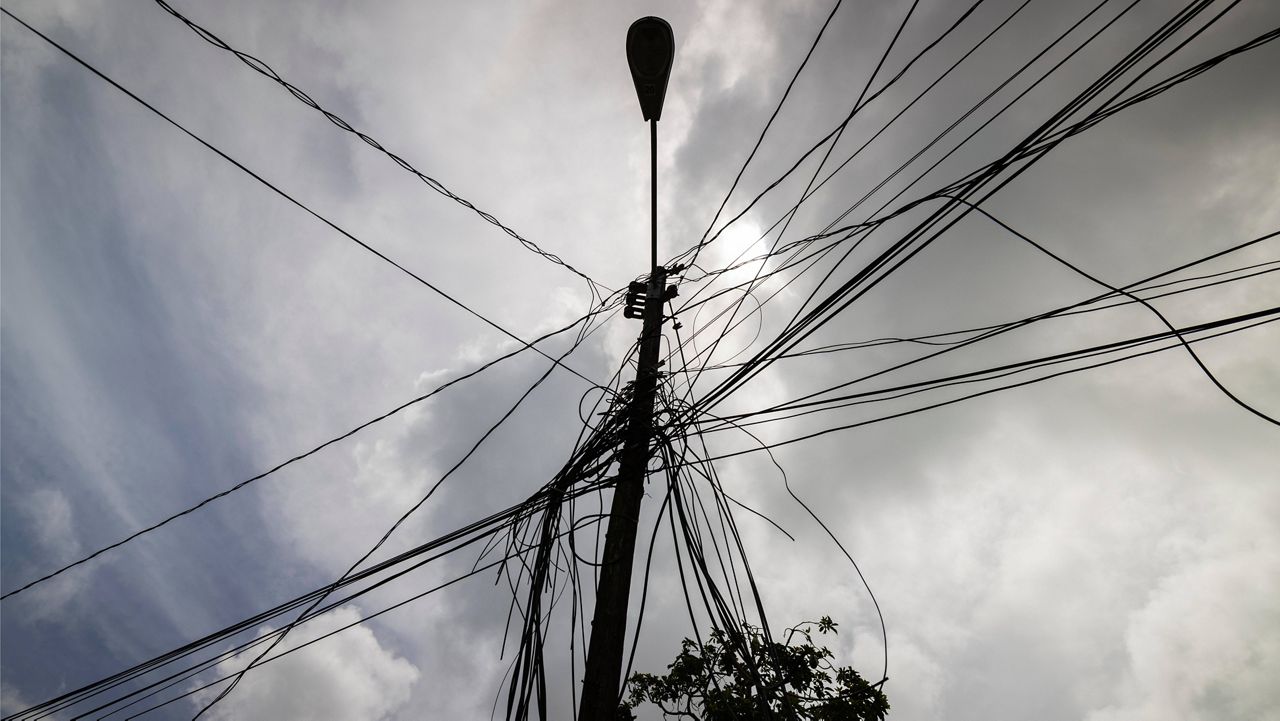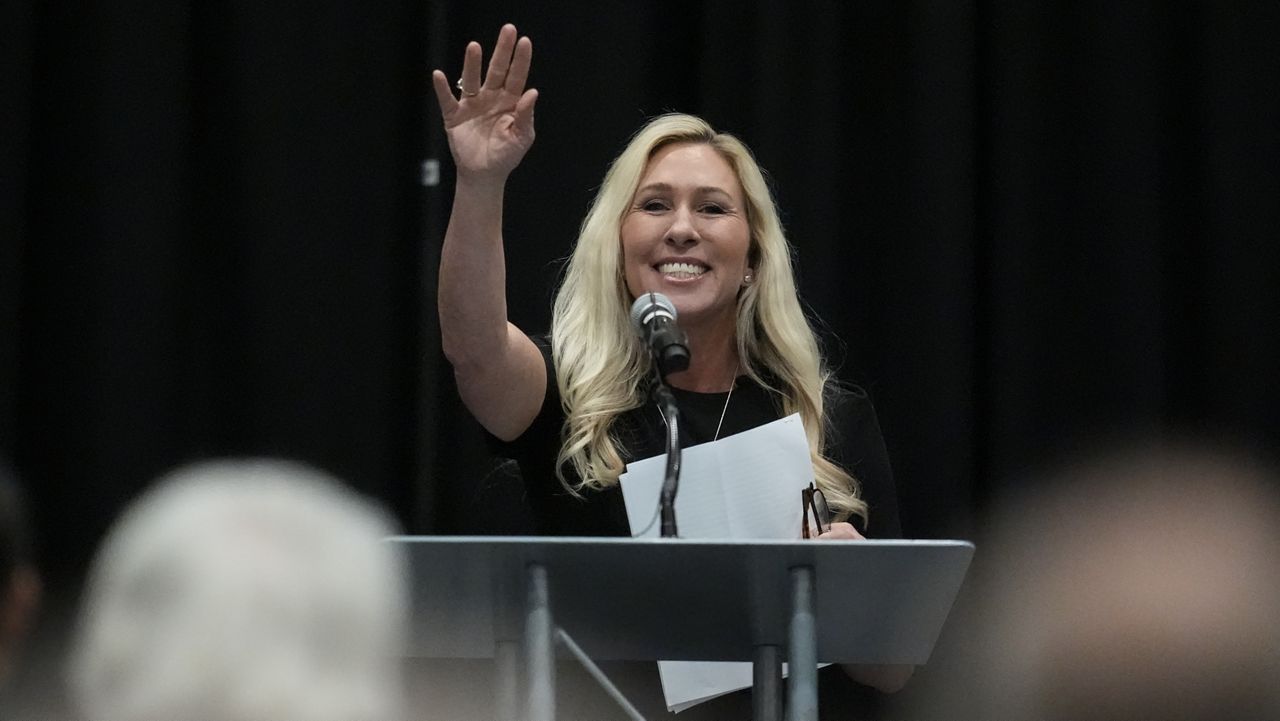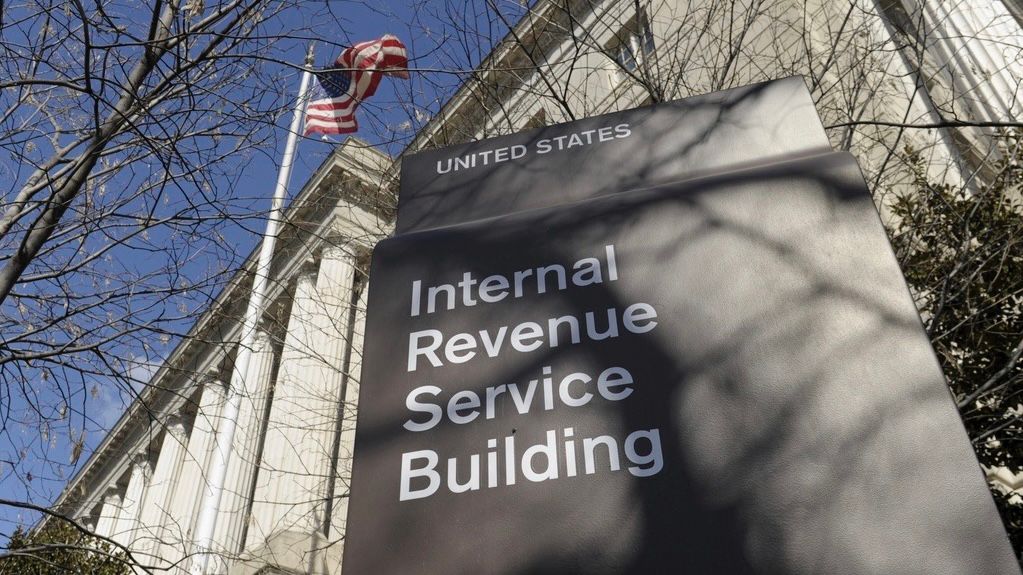The FBI believed there was probable cause agents would find classified documents in a search of former President Donald Trump’s home, according to a heavily redacted affidavit unsealed Friday, plus potential evidence of obstruction of the investigation into those documents.
What You Need To Know
- The FBI believed there was probable cause agents would find classified documents and evidence of obstruction of justice in a search of former President Donald Trump’s home, according to a heavily redacted affidavit unsealed Friday
- Following a judge’s order, the Justice Department released the document used by federal agents to justify the search earlier this month of Mar-a-Lago
- The affidavit, written by an FBI special agent with personal knowledge of the classified documents taken to Mar-a-Lago, says the investigation involves the “improper removal and storage of classified information in unauthorized spaces, as well as the unlawful concealment or removal of government records"
- On his Truth Social platform shortly after the affidavit was unsealed, Trump blasted Judge Bruce Reinhart for approving the search warrant
Following a judge’s order, the Justice Department released the document used by federal agents to justify the search earlier this month of Mar-a-Lago, the Palm Beach, Florida, resort that serves as both Trump’s residence and a private club.
The affidavit, written by an FBI special agent with personal knowledge of the documents taken to Mar-a-Lago, says the investigation involves the “improper removal and storage of classified information in unauthorized spaces, as well as the unlawful concealment or removal of government records.”
It confirms previous reporting that the FBI opened the probe after Trump in January returned 15 boxes of documents stored at Mar-a-Lago to the National Archives. The FBI, according to the document, was investigating, among other things, how the classified documents were removed from the White House or other locations, whether any additional classified documents may have been stored in unauthorized locations at Mar-a-Lago, whether any remained there and who might have removed or retained the information.
The affidavit says there was probable cause to believe documents containing sensitive national defense information or that should be in the custody of the National Archives remained at the property. The agent who wrote the affidavit also believed there was probable cause to believe they would find evidence at Mar-a-Lago that the former president or his lawyers tried to obstruct the investigation.
Among the documents returned to the National Archives in January were 167 marked classified, 25 designated top secret and some that included information gathered from human intelligence sources, or informants, whose identities are typically protected.
Some of those classified records were mixed with other documents, including newspapers, magazines and miscellaneous print-outs, the affidavit says, citing a letter from the Archives.
The FBI’s reasoning for believing documents remained at Mar-a-Lago is not explained in the unredacted portions of the document. But Mar-a-Lago is not authorized to store secret documents, the affidavit notes.
The FBI sought to search Trump’s personal suite and office as well as any storage rooms and other areas he had access to.
Federal Magistrate Judge Bruce Reinhart last week ordered the Justice Department to submit proposed redactions to the affidavit, which federal prosecutors did Thursday. Hours later, the judge, Bruce Reinhart, gave the Justice Department until noon Eastern time Friday to file the document in the public docket.
Multiple news media organizations, including The Associated Press, argued in court for the disclosure of the document, citing the extraordinary public interest in the federal search of a former president’s home. Trump and some of his supporters also encouraged the document’s release.
The Justice Department opposed the release, saying the disclosure risks compromising an ongoing criminal investigation, revealing information about witnesses and divulging investigative techniques.
Reinhart has said that though he was sensitive to the department’s concerns, he was not inclined to keep the entire document sealed and directed officials to submit to him redactions of the document reflecting the information it wants to keep secret.
The judge on Thursday wrote that, after reviewing the proposed redactions, the government had "met its burden" by showing its ommissions were "narrowly tailored to serve the Government’s legitimate interest in the integrity of the ongoing investigation" and the best alternative to sealing the entire document.
The Justice Department said its redactions were necessary to protect the safety and privacy of a significant number of witnesses in additional to law enforcement personnel. It also noted that disclosing grand jury material would violate federal law.
Former U.S. attorney David Weinstein told Spectrum News that the unsealing of any document like the affidavit is extremely rare.
"Requests by the government to keep investigatory information and documents under seal are routinely granted," he said.
After the affidavit was unsealed, Weinstein added: "We know a lot more now about what the facts were and that they were sworn to by an agent under penalty of perjury."
Documents already made public as part of the investigation show that the FBI retrieved from the property 11 sets of classified documents, including information marked at the top secret level.
On his Truth Social platform shortly after the affidavit was unsealed, Trump blasted Reinhart for approving the search warrant.
“Judge Bruce Reinhart should NEVER have allowed the Break-In of my home,” Trump wrote.
The former president suggested that because Reinhart recused himself from Trump’s lawsuit earlier this year against Hillary Clinton, the Democratic National Committee and others, he should not have been involved in authorizing the warrant.
Trump claimed Reinhart removed himself from that case “based on his animosity and hatred” of the former president, but Reinhart never provided a reason for his recusal.
Trump also pointed out that the unredacted portions of the affidavit made no mention of documents related to nuclear activity, which had been previously reported. The affidavit, however, does say the FBI found documents that appeared to contain national defense information.
Trump’s defense has shifted since the search. He has argued he was cooperating with government agents and suggested FBI agents might have planted evidence, while his aides have claimed he had a “standing order” to declassify documents transported from the Oval Office to his home.
Weinstein said the DOJ "doesn't believe it is a viable defense" and said they plan to proceed along the path assuming that the documents are, in fact, classified.
Asked Friday if he believes national security was threatened by Trump holding sensitive documents at Mar-a-Lago, President Joe Biden said, “We’ll let the Justice Department determine that.”
The White House has insisted it had no advance knowledge on the Mar-a-Lago search or input into the Justice Department’s investigation.









